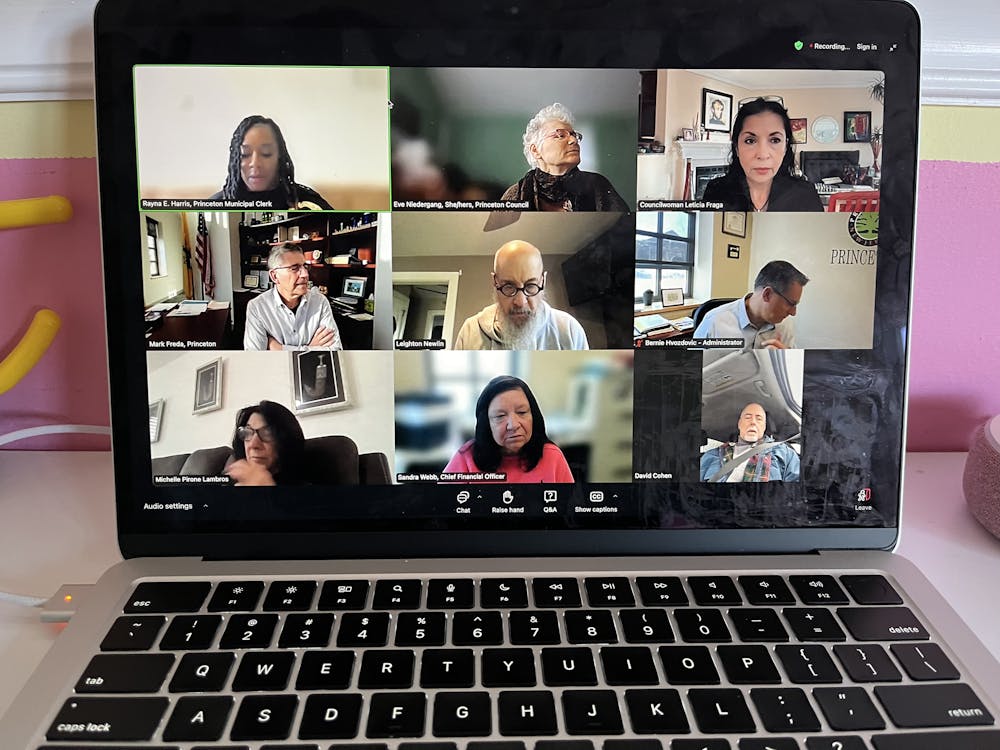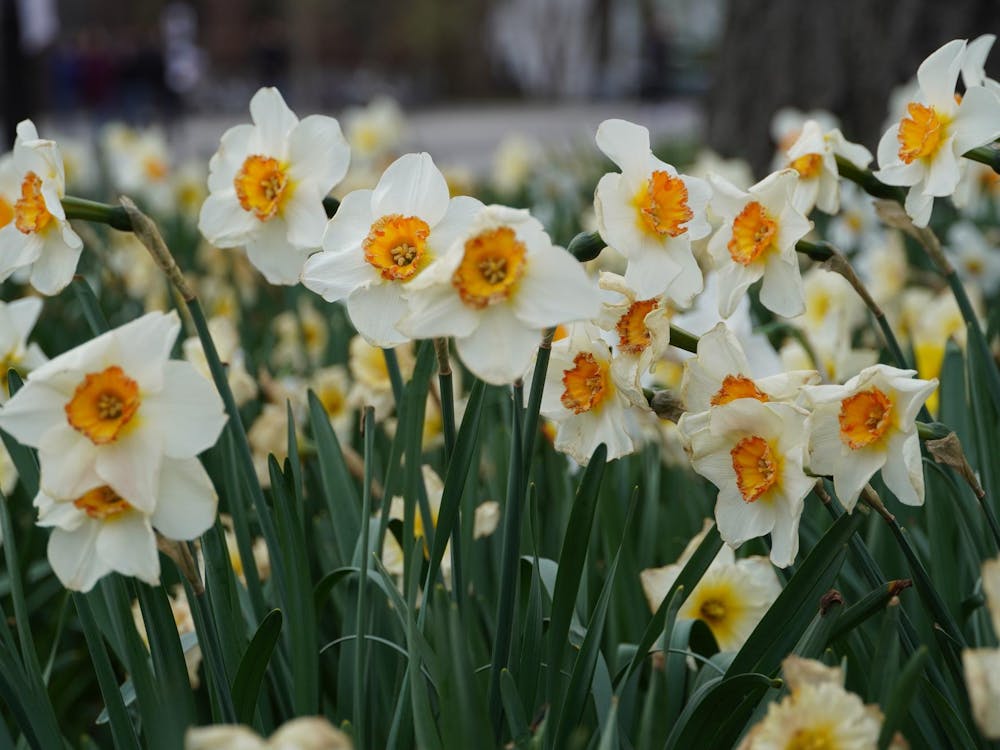Two young people meet on a train, each on separate journeys to find themselves. Instead, they find each other. In the “Before” trilogy, Jesse and Céline find love and romance, laugh and bicker, and lose and regain each other through a series of disconnected conversations — once in their 20s, again in their 30s, and then as parents. The films repeatedly confront and resolve the contradictions of an ideal love interrupted by the demands of real life.
Jesse first encounters Céline in the back of a train car headed to Vienna as he tries to escape the sound of an old couple’s tiresome quarrel. Although the city is only a transit stop for both of them, it becomes the destination when he asks her to get off the train with him. Time stops for them and their respective lives on the train as they wait for the sunrise to bring them back to reality.
In following the couple, I’ve come to realize that romance is an act of mourning. We realize everything that has happened only in retrospect, foreclosing the possibility of an “objective truth” and obscuring the reality of the moment. To the realist, romance crumbles before it is even erected, and love is death masquerading as life. But what does it mean to “be” in love?
Beyond the aesthetic qualities of the film, the beautiful actors, and the retrospective admiration for the late ’90s, there’s something about this film trilogy — which also includes “Before Sunset” and “Before Midnight” — that seared a hole into my heart when I watched it the first time, and it’s slowly coming back to haunt me before what seems like a universal day of mourning: Valentine’s Day.
With the cameo of “Histoire de l’œil” (“Story of the Eye”), a pornographic novel by Georges Bataille, “Before Sunrise” already reveals itself before it has even started. The book is about two teenagers who embark on a journey to discover their perverse desires, engaging in murder and violent sex. It foreshadows the repetition in the dialogue to come, which is full of references to transgression, resistance, and discomfort between the two. More than anything, dialogue, or what Céline calls the “space in between” two people, is what transgresses the inhospitality of reality.
Céline isn’t looking for someone to love. She’s looking for someone to hate. Someone to fight. The anecdote about her parents is telling: She’s sick of liberal parenting, being nice and respectful, and coming to compromises.
Céline is a romantic, and Jesse is a skeptic. He continuously makes pessimistic remarks about poets and fortune-tellers whose methods are questionable. He’s somewhat dissatisfied at his core, searching for something that doesn’t exist.
The two constantly look at each other, avoiding the other’s gaze so as not to reveal themselves — just like the director evades the viewer’s gaze. He doesn’t want to tell us that Jesse and Céline actually had sex in the first movie until the two say it to themselves nine years later in the sequel film.
In fact, whenever Jesse and Céline are together, they’re never really admitting anything. In the second movie, “Before Sunset,” Céline sings a song about a waltz upon Jesse’s request in her apartment, where they reunite after nine years. The song retells their story, how the two are in an eternal waltz, watching every step the other person makes.
In the closing scene of the second movie, Céline professes her love for American singer Nina Simone: how she would stop in the middle of a song at concerts, walk up to the front of the stage, talk to the audience members, and then start an entirely new song all over again. Is she really talking about Nina Simone, or is she talking about the very precarious situation between her and Jesse, where each interrupts the other’s life, insisting on playing another song and leaving the other behind?
This is what the director wants, I think — for us to watch the waltz carefully, for Céline and Jesse to faintly reveal themselves with each step they take only to confront a frustrating moment when it’s all blurred again. What happens next? There is only dialogue and no scenery to match it.
The two say things to each other, reminiscing over the old days, but of course, the viewer can’t know whether to trust it. When Céline sings, “one single night with you, little Jesse, is worth a thousand with anybody,” she couldn’t be more clear that she’s truly in love. Yet even when she does, Jesse suggests that it could be about anybody else if she just replaces the name, but the viewer is tempted to believe it’s really about Jesse, and only Jesse.

This is love. When we technically could choose anybody to fall in love with, we realize we’ve fallen in love, decide on one person, and never mind the rest.
The plot relies entirely on the reader’s ability to take leaps of faith and make broad conclusions about the relationship. We never know what to think for sure, and it’s just a big guessing game — love. Is this it? A perpetual state of anxiety, constant anticipation, and restlessness that truly defines the “being” in love? Why do we wait? For what do we wait? If we’re in love, then shouldn’t everything feel perfect, unique, and like a miracle — one of a kind? The myth of “soulmates” prescribes our lives as if our lives are, from birth, indebted to another. I’m miserable just thinking about it.
In truth, lovers are infinitely dispensable. The rules of love have been constantly replaced and rewritten many times over — the history of love started before the accidental explosion of atoms that created the universe, and since then, minds of rational men have attempted to recreate scenes of intimacy, reciting the same sentences over and over again in order to access the true and honest love that nevertheless prevails as the world’s greatest mystery.
Once the romance dies for good, is love still the correct term to define whatever stage the relationship has crumbled into? What happens when we grow old together and start noticing the bad things about each other more than the good we started with?
If the series had ended with the second movie, I think I would’ve cursed out the director. The sequel film ends with the two in Céline’s apartment. Céline says, “baby, you are gonna miss that plane,” to which Jesse responds, “I know.” The two laugh, and the scene fades with music and laughter in the background. Why did he miss that plane? Is this dialogue suggesting that they had spent the night together? We’ll never know for sure, and it’s all up to the viewer’s interpretation — we can believe whatever we want to believe. The director constantly keeps us on our toes.
But in the final movie, he gives in. Jesse and Céline have children now, and their special, one-of-a-kind relationship has decayed into normalcy. Just like any other couple out there, they’ve grown out of naïve conversations about the world and into the bickering of the married couple trope. The scenes no longer hide the secret intimacy and “reality” of the relationship: Sex scenes and arguments shatter yet intensify the previously proposed superficially whimsical narrative of love.
The mystery of love hasn’t eluded them, though. It has revealed itself completely, confronting the viewer with an obscenity that suggests the movie is actually watching us, not the other way around, as if to say, “be careful of what you wish for.” At one point in the second movie, Céline says, “reality and love are almost contradictory for me.” And once they have children, reality taints love in almost every scene, and the conversations grow more and more cynical.
Something about having children illuminates the cruelty of love. Love strips a person of their life and keeps it in reserve — in order to pass it on to the next generation of lovers. It makes sense that Céline and Jesse are playing a constant game of waiting and fidgeting. They’ve lost something, and they don’t even know it yet.
Personally, I’m not ready to confront the inevitable act of mourning that is love. I’m still narcissistic in my youth, and I won’t fall for the lie that love is actually lovely. I don’t like waiting in lines, I hate it when people utter half-truths to me, and so, naturally, I’m not sympathetic to love at all. But who knows? Maybe someday, somewhere, I’ll meet a beautiful stranger on a train, we’ll talk about silly things until my tongue falls off while carefully avoiding eye contact, and I’ll finally surrender to the predetermined destination of love that has waited for me since the beginning of time.
Kyung Eun Lee is a contributing writer for The Prospect at the ‘Prince.’ She can be reached at kl4617@princeton.edu or on Instagram @entertainmentkyung.
Self essays at The Prospect give our writers and guest contributors the opportunity to share their perspectives. This essay reflects the views and lived experiences of the author. If you would like to submit a Self essay, contact us at prospect[at]dailyprincetonian.com.









